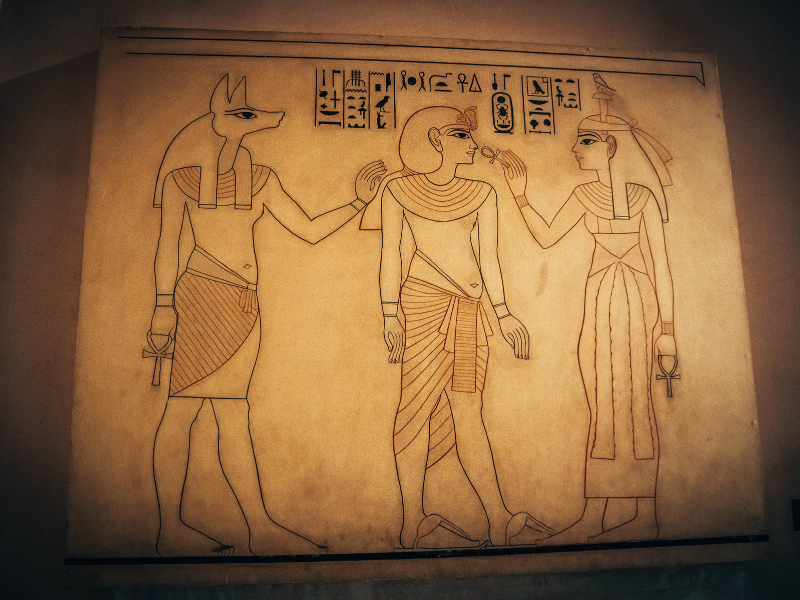
Unveiling the Past: The Fascinating History of Events Management
Introduction: Events have been an integral part of human civilization, playing a pivotal role in shaping cultures, societies, and interactions throughout history. From ancient rituals and religious gatherings to modern-day conferences and festivals, the art of organizing events has evolved into a sophisticated profession known as events management. In this immersive post, we embark on a captivating journey through time, exploring the historical roots, milestones, and transformative moments that have led to the development of events management as a distinguished profession.
Ancient Gatherings: The Birth of Events
- Prehistoric Gatherings: Unravel the origins of events in prehistoric times, where early humans gathered for communal rituals, ceremonies, and celebrations.
- Ancient Civilizations and Festivals: Explore the vibrant festivals and gatherings organized by ancient civilizations like the Egyptians, Greeks, and Romans, which often centered around religious observances and cultural celebrations.
Medieval Fairs and Renaissance Feasts: The Evolution Continues
- Medieval Fairs: Step into the bustling world of medieval fairs, where traders, performers, and locals converged to exchange goods and revel in entertainment.
- Royal Celebrations in the Renaissance: Discover the opulent feasts and celebrations hosted by royalty during the Renaissance era, showcasing the grandeur and spectacle of events during that time.
The Birth of Modern Events: Industrial Revolution and Beyond
- The Rise of Spectacles: Witness the emergence of large-scale public events, such as the Great Exhibition of 1851, which marked the dawn of a new era in events management.
- Social and Political Events: Explore the pivotal role of events in shaping social and political movements, from suffrage rallies to civil rights marches.
The 20th Century: Events Come of Age
- The Roaring Twenties: Delight in the extravagance of the 1920s, with its lavish parties, flapper dances, and speakeasies, which epitomized the spirit of the Jazz Age.
- The World of Conferences and Expositions: Trace the development of conferences, trade shows, and expositions in the 20th century, becoming significant platforms for knowledge exchange and economic development.
Events Management as a Profession: The Birth of a New Industry
- The Birth of Event Planning: Witness the gradual professionalization of event management, with the emergence of dedicated event planners and coordinators in the mid-20th century.
- Event Management Education: Explore the development of event management courses and programs, offering formal education and training for aspiring event professionals.
The Digital Revolution: Transforming Events Management
- Technology Reshapes Events: Discover how advancements in technology, including online registration systems and virtual events, have revolutionized the events management landscape.
- Social Media and Event Promotion: Understand the impact of social media platforms on event promotion, attendee engagement, and real-time updates.
Sustainable Events: Embracing Environmental Responsibility
- The Rise of Eco-Friendly Events: Explore the growing trend of sustainable events, reflecting a heightened awareness of environmental impact and responsible event practices.
- Green Event Certification: Learn about eco-labels and certifications that recognize events for their commitment to sustainable practices.
Globalization and Cultural Fusion: Diversity in Events
- Cultural Festivals: Embrace the richness of cultural festivals that celebrate diversity and foster cross-cultural understanding.
- Destination Events: Discover the allure of destination events, attracting attendees from around the world to experience unique cultural celebrations.
Mega Events and Legacy Planning: Leaving a Lasting Impact
- Mega Events: Delve into the scale and significance of mega events like the Olympics and World Expos, leaving a lasting legacy on host cities.
- Event Legacy Planning: Understand the concept of legacy planning, ensuring that events positively impact host communities beyond their conclusion.
Events Management in the Digital Age: Challenges and Opportunities
- Real-Time Data and Analytics: Explore how data analytics have empowered event managers with real-time insights to enhance event experiences.
- Virtual and Hybrid Events: Embrace the opportunities presented by virtual and hybrid events, breaking geographical barriers and increasing accessibility.
The Future of Events Management: Navigating New Horizons
- Innovations in Events Technology: Anticipate the role of technology in shaping the future of events management, from AI-powered event assistants to virtual reality experiences.
- Resilience and Adaptability: Reflect on the industry’s ability to adapt to unforeseen challenges and the resilience demonstrated during times of crisis.
Conclusion: A Tapestry of Time: Events Management through the Ages
As we bring this immersive journey through the history of events management to a close, we gain a deeper appreciation for the transformative power of gatherings. From ancient rituals to modern-day extravaganzas, events have united communities, celebrated diversity, and shaped human experiences throughout history. The evolution of events management as a profession reflects the ever-changing landscape of society and technology, with endless possibilities for future innovation. As we look ahead, we celebrate the creative spirit of event organizers and the enduring legacy of events, woven into the tapestry of human culture and progress.
